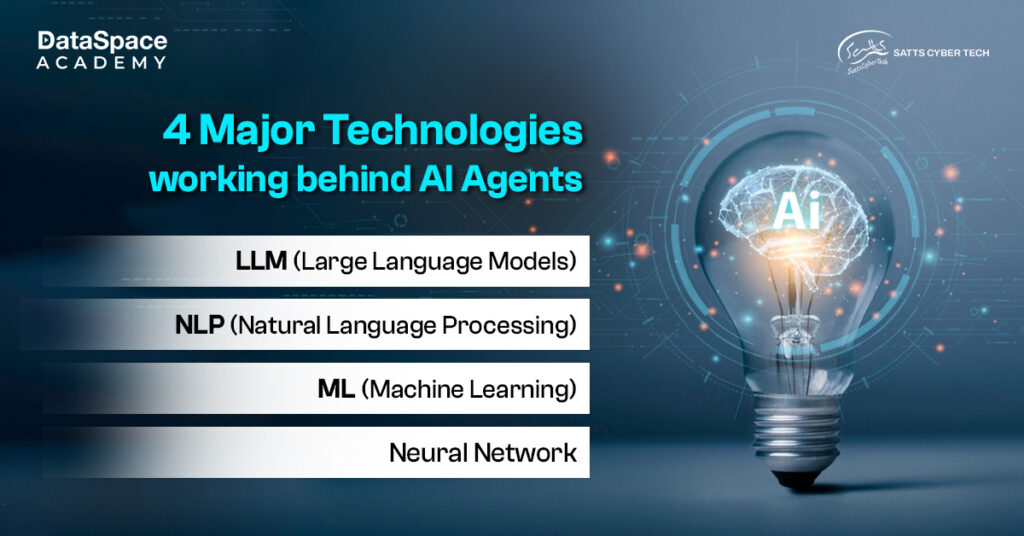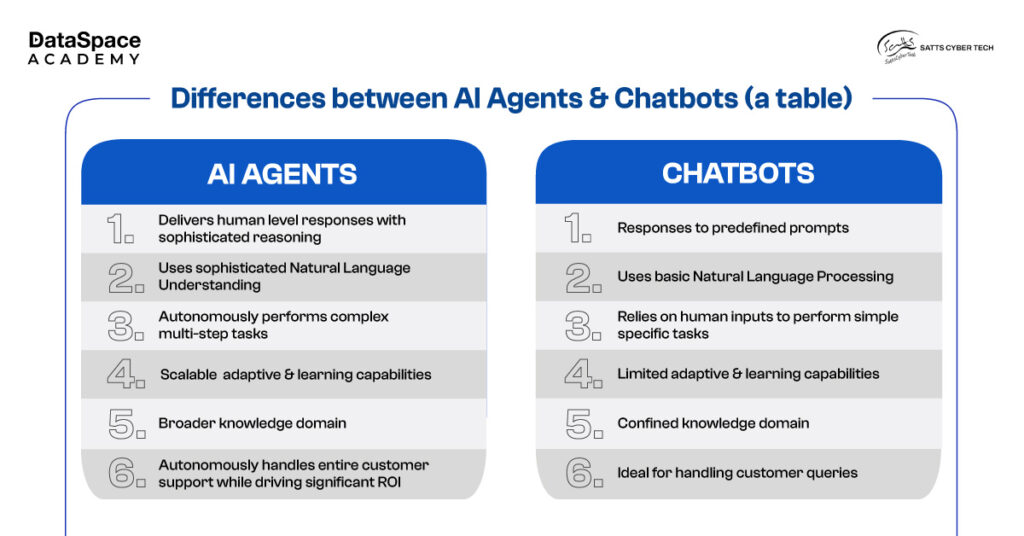If you think the GPT revolution has simplified the daily execution of tasks with smart assistance or chatbots, sit back- more is yet to come.
We are talking about
AI agents, the current buzzing term making tech headlines worldwide. But what fuels the buzz? The simple answer is extreme level automation without human intervention. This is the future that will soon revolutionise the conventional way of project execution and successful completion. Just a few initial prompts will suffice for the execution and development of a functional website without users’ input. Sounds fictional? Not really, especially with the dawn of Artificial Intelligence Agents.
Dive into this insightful guide to discover the present & future of operational convenience powered by
different types of ai agents.
AI agents are the advanced version of AI assistants and GPT, highly capable of performing specific tasks autonomously without human input.
The evolution of automation, particularly with chatbots and GPT models, is being driven by advancements in NLP, machine learning, and neural networks. Future AI agents will outpace existing tools and
top ai chatbots to handle complex tasks and make contextual, independent decisions. This unmatched efficiency is set to redefine the global operational workflows permanently.
The key factors securing AI agents' position as the ultimate assistants are intelligence, adaptability, and autonomy. Here’s a closer look at their standout features:
The major types of intelligent agents in artificial intelligence work through a consistent process of learning, adapting, and evolving, which looks like this:

The transformative avatar of AI agents is the collective result of cutting-edge innovations. Technologies igniting the capabilities of AI agents in solving real-world business challenges are:

Though in the beta stage, leading industries are already reaping the super intelligence of AI agents to overcome operational challenges and deliver convenience, such as:
The future of AI agents is limitless, revolutionising industries with smarter automation and decision-making. A
machine learning course with certificate equips you with the expertise to lead in this transformative AI era. Embrace this opportunity to upskill and personalise your career path, unlocking exciting possibilities in the AI-driven world.


 The transformative avatar of AI agents is the collective result of cutting-edge innovations. Technologies igniting the capabilities of AI agents in solving real-world business challenges are:
The transformative avatar of AI agents is the collective result of cutting-edge innovations. Technologies igniting the capabilities of AI agents in solving real-world business challenges are:


